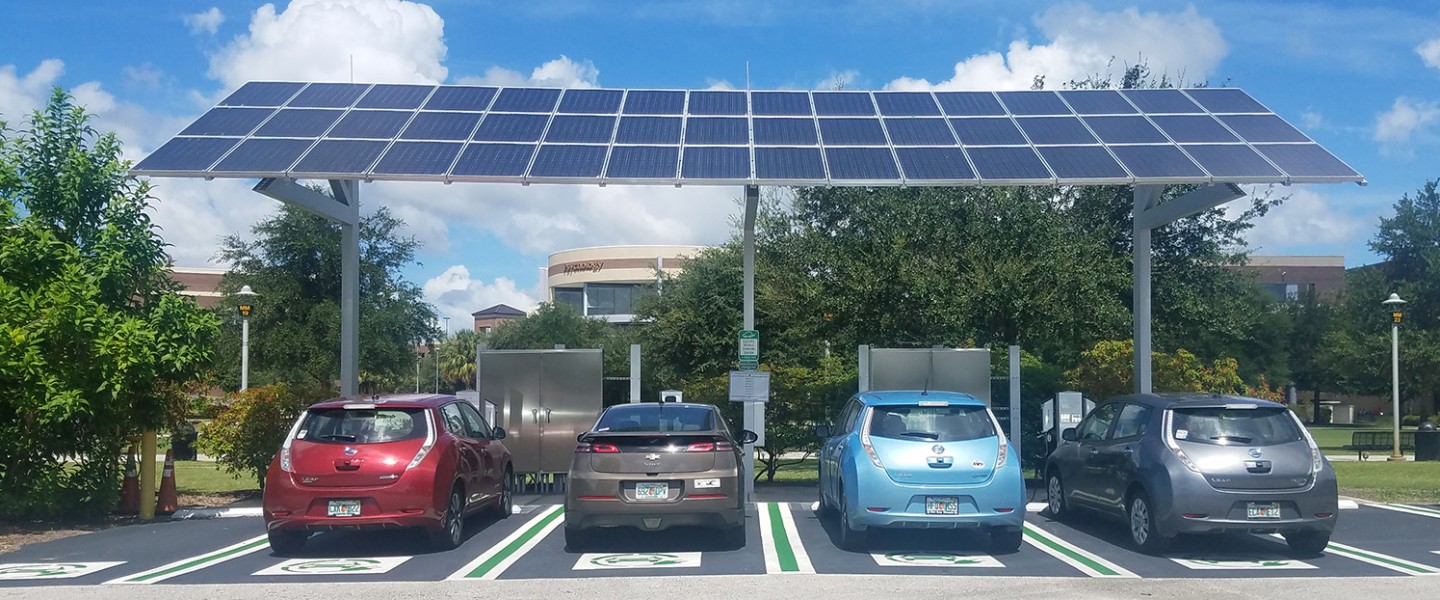
UCF researchers have developed several bi-directional power electronic circuits for battery charging in solar, grid-tied systems. The battery charger uses Maximum Power Point Tracking (MPPT) to charge batteries or simply provide a DC output at up to 300W with a solar panel connected to its input. The power stage is highly efficient and with MPPT, with 30% more power harvested from the solar panel compared to chargers without MPPT. It is fully digitally controlled, which makes it possible to perform a very fast MPPT algorithm to react on changes of radiation fast. Separate charging algorithms can also be implemented easily to adapt to different battery chemistries. In order to meet higher power levels, several chargers can be connected in parallel, and realize current sharing using the CAN bus for communication. Its user interface makes it possible to change several settings, for example, parameters of the battery charging algorithm or its output voltage if used as a DC source. Besides that a LCD displays the current operating conditions such as voltage, current and power for its input and output.
Years of Research: 2001-Present
Suggested Publications
- Modeling and Control of Three-Port DC/DC Converter Interface for Satellite Applications
- Window-Masked Segmented Digital Clock Manager – FPGA based Digital Pulse Width Modulator Technique
- Analysis and Design of an Adaptive-Step-Size Digital Controller for Switching Frequency Auto-tuning
- An Active Compensator Scheme for Dynamic Voltage Scaling of Voltage Regulators
